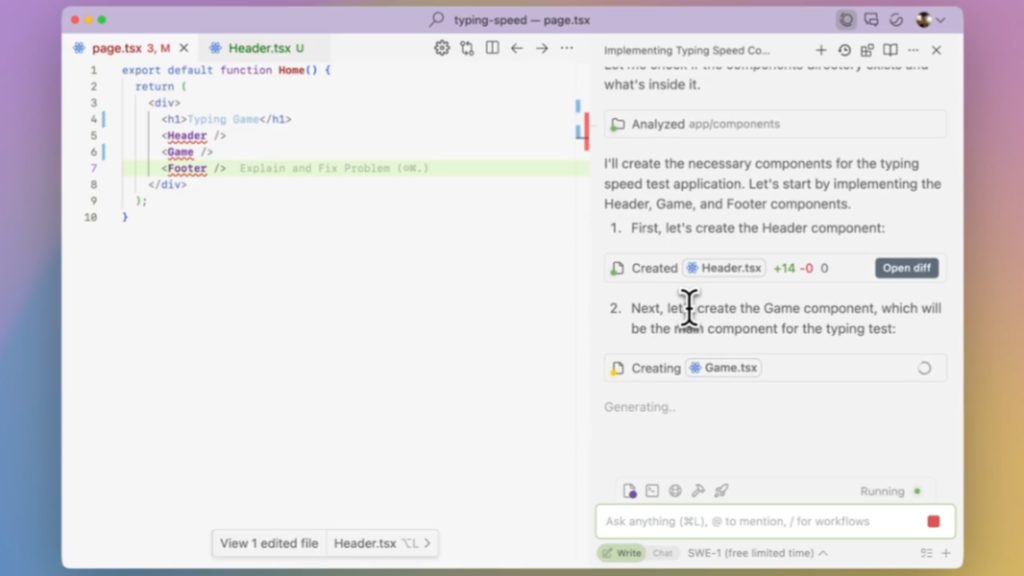
OpenAI was set to acquire AI coding startup Windsurf in May for $3 billion, but Microsoft refused to authorize the transaction. So now Windsurf’s top talent is heading to Google DeepMind to help with that company’s agentic coding efforts.
“We’re excited to welcome some top AI coding talent from Windsurf’s team to Google DeepMind to advance our work in agentic coding,” a Google statement explains. “We’re excited to continue bringing the benefits of Gemini to software developers everywhere.”
Windows Intelligence In Your Inbox
Sign up for our new free newsletter to get three time-saving tips each Friday — and get free copies of Paul Thurrott’s Windows 11 and Windows 10 Field Guides (normally $9.99) as a special welcome gift!
“*” indicates required fields
Windsurf makes an AI-powered software development editor similar to Cursor or Microsoft Visual Studio Code, which is integrated with GitHub Copilot. In May, OpenAI planned to acquire the company for $3 billion, but Windsurf’s executive team raised issues about sharing any information about its product with Microsoft, as is required by its partnership agreement with OpenAI. So OpenAI asked Microsoft for an exception to the contract, as it did when it acquired Jony Ive’s hardware AI startup IO.
Microsoft accepted the IO exception because it has no plans to make AI hardware devices for consumers. But it shot down the Windsurf acquisition because its product competes with Visual Studio Code and GitHub Copilot. And so Windsurf was free to pursue other offers. And Google came calling. It will pay Windsurf $2.4 billion for a non-exclusive license for its technologies and hire some of its top staff.
“We’re excited to announce that Windsurf and Google have entered into an agreement that will help kick-start [our] next phase,” the Windsurf team writes in its announcement post. “As part of the agreement, [CEO] Varun [Mohan], co-founder Douglas [Chen], and some members of our R&D team will join Google. Most of Windsurf’s world-class team will continue to build the Windsurf product for the enterprise and enable our customers to maximize the outcomes from adopting this technology.”
Windsurf also named Jeff Wang, its head of business, as interim CEO and Graham Moreno, formerly a vice president, as president. But the bigger issue here is how Microsoft flexing its rights will further sour its OpenAI partnership. It’s clear now that its botched attempt to convince Microsoft to let it acquire Windsurf is at the heart of last month’s revelations that OpenAI is prepping an antitrust complaint against the software giant to help it pressure Microsoft to alter its agreement.

